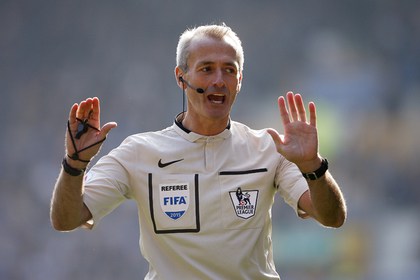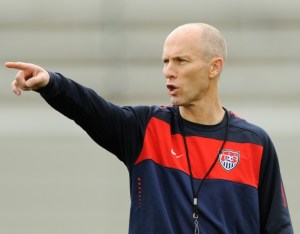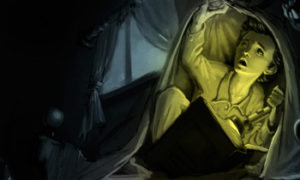From translator. After the confederations Cup and a year before the world Championship on football of 2018, the largest international sporting mega-events to be held in several Russian cities, it would be interesting to draw the attention of readers on the theme of integrated approach to sports, particularly to football as the most planetary sport.
Football and other professional sports, due to its comprehensiveness, the focus on pragmatic results and significance for society, as if created for the application of integral vision; however, the consistent application of this approach requires great intellectual and moral effort.
The literature has already documented attempts of applying the integral coordinate system proposed by Ken Wilber, the sport (for example, the approach has been successfully applied to the creation of a children’s tennis Academy1; also in English the book “Integral consciousness and sport” considering streaming state of consciousness that occurs in sports; there are articles that indicate the potential application of the integral approach to physical education extreme sports; we also published an article about the integral term on the sports mega-events on the example of the world Cup, held in Russia, there are also proposals for the use of an integrated approach to the management of sports events5 and other development).
However, we cannot yet say that the theme currently has received quite extensive development it deserves.

Undoubtedly, the development of integrated approach requires a serious commitment on the part of professionals in the field of sport (especially this integrated approach may be of interest to sport psychologists, coaches and functionaries, but not only).
Below we offer to your attention a historically important essay, written in 2010, former player of Amsterdam’s Ajax and the national team USA football John O’brien, who used the perspectives of the quadrants of the integral model to the problem of refereeing. the Essay was published in “The New York Times”. – Approx. lane
In the framework of the ongoing world Cup 2010, as was the case with previous FIFA world cups, often there are situations when judges make bad decisions. Is that allowed key mistakes that destroy the hopes and aspirations of a team; also we witness the not so important errors of judicial decisions that, at least, upset or, in extreme cases, cause outrage. Naturally, we directed all your anger at the wrong person on the field who wear the uniform of the referee. Yes, a football judge or even the whole referee team is assigned the largest wine; sometimes blame the player and the manipulator, “diving” to provoke the referee to whistle a violation.
If we want to improve the moral integrity of football as a sport, it is necessary to take secudrity approach
All agree that football should be as honest as possible, but how to achieve this without changing the essential look of the game? If we refer to the approach proposed by the philosopher and author Ken Wilber, this can be achieved through the development of four areas, known as quadrants.
Quadrant No. 1: external individual. This is the domain of the referee. Improvements should involve increasing the ability of judges to make decisions in an objective manner. In preparation for this world Cup, was invited to Spanish sports psychologist, who specifically worked with the referees. He taught them the skills of conscious relaxation, and the idea was that a quiet mind allows you to perceive the world more clearly and objectively. He also suggested that the judges of exercises for the eyes. However, while most attention is paid to the arbitrators, this approach in isolation will never be enough in the context of a rapidly evolving and complex situation of a football match. The referee needs help.

Quadrant # 2: the external collective. Team of football referees on match includes the chief referee, two assistant referees referees on the line – and the fourth, a backup judge.7 Help of technology has increased the efficiency of this functional system. Referees at the match wear microphones and headphones. The assistant referee on the sideline is a transceiver, by which he gives signals to the arbiter. Also proposing the introduction of technologies such as replay and microchips in the soccer balls that signal, if the ball crossed the goal line or the goal was not.
It’s the two outer quadrant. However, there are also internal quadrants. What about the fact that the players are responsible for fair play? A football match is a too complex an event to rely solely on external factors is to eradicate all aspects of foul play.
Quadrant 3: internal individual. As a player, I can remember the first time I made the dive. I was 16 years old, and I was browsing in Ajax. I knew that I can’t make a mistake. For the first time in my life I felt great psychological pressure. During the tournament we played against the French youth team at the stadium “Olympic Lyonne”. I had the ball but had nowhere to move. I sent the ball to an empty area and allowed the defender to crash. Sounded the referee, I have kept the person and the team got an advantage: he was appointed free kick.

John O’brien of FC Ajax
There is still not clarified the difference between appropriate action in provoking the player to the opposing team to foul with a subsequent fall as a result of deliberate tripping on his outstretched leg and inappropriate simulation – dive in the absence of physical contact. Also in the “gray area” gets an aspect of exaggeration of the force of such contact. A loud scream if you fall on the field would be an acceptable way to attract the attention of the referee to foul, but attempts to exaggerate the extent of the breach is an element of foul play.
In many teams it is considered acceptable to take to gain advantages on the field. In other teams, as a rule, higher class – the emphasis is on pursuit-improvement. This means the embodiment of their full individual potential in all areas, including moral. The best coaches understand this: one example is Phil Jackson8, support the spiritual development of their wards. This approach is a “carrot”.
The coach can play an important role in the implementation of this approach in teaching commitment to the whole team or the whole club, or country, or even all players. If this approach ingrained, the Brazilian footballer Fabiano would have stopped and allowed the Ivorian to the ball after undetected play of the hand during the first match at the world Cup. Then Brazil took would be unfair in the account with advantage in two balls. Sounds radical? But once experienced the feeling that you have been treated unfairly and in violation of the rules, as you can do the same against somebody else, especially his fellow player?

Okay, okay, it is naive to think that all the players voluntarily decide to stop foul play. But you can at least start the process in this direction? Here you can suggest the approach of “carrot”. The head coach of the national team of the USA Bob Bradley9 calls the deception leading to the violation of the spirit of the game, “the easiest thing to fix”. After Brazilian striker Kaka received undeserved red cardwhen a player of the national team of côte d’ivoire dramatically faked an injury, Bradley said, “It’s as obvious a simulation, like when someone pushes in the chest and he grabs his face and falls to the ground; I would suggest to abolish the unfair red card to disqualify stimulirovannogo player on a large number of matches.” The punishment will be the most whip, and development – the carrot, and together they will be able to improve the internal individual quadrant.
Yes, of course, the individual is responsible, but must change the whole culture of sport in General. When a player of the French national team Thierry Henry has apologised for the handball in the match against Ireland in the qualifying for the world Cup, he admitted that he had violated the fair play (fair play). But how often do we see that the player has risen above the culture in which it is considered that foul play is part of the sport?
Quadrant No. 4: internal collective. During a difficult season in Ajax my teammate, striker Nikos Machlas, a simulated dive in a match against “Feyenoord”; thus, we had a penalty and eventually won the match. In the days that followed criticism from the media resulted in pressure on the player and in the locker room. Mahlase called “diver”, “facerem”, “deceiver.” At some point, Mahlas, who is pretty tired of his teasing teammates, shouted: “What do you want? Thanks to me you won!” His remark was met with a puzzled silence. Really: in our team culture was not indicated whether we want to win the match by all possible means, or only by fair play. Most football teams are clearly not a specific moral space.
Athletes, coaches and club officials in the sport – we can all take steps to transform the culture. FIFA awards the award for “fair play” one of the teams participating in the world Cup. At each match the players when out on the pitch accompanied by children to remind athletes that they are being watched and that fair play is something important. And separate club, and the country as a whole can clearly define its position in relation to violating the spirit of the game of deception on the field, applying the approach both carrots and sticks. But I have not met a situation when the player would be punished for the fact that he scored a goal, playing the hand contrary to the rules or faking the dive to earn decisive penalty. Maybe the football culture will change.
If we want to improve the moral integrity of football as a sport, it is necessary to take secudrity approach. Easy, of course, to apply to the chief judge and his assistants, however, the attitude of players to the game and culture of competition in which they are immersed, must also evolve. Similar work has already been done in the past, which led to the creation of this amazing sport. There is no reason to stop there and not continue its development towards a more healthy future.




This is the correct blog for anyone who desires to seek out out about this topic. You realize a lot its almost arduous to argue with you (not that I truly would want匟aHa). You definitely put a brand new spin on a subject thats been written about for years. Nice stuff, simply nice!
Respect to website author , some wonderful entropy.